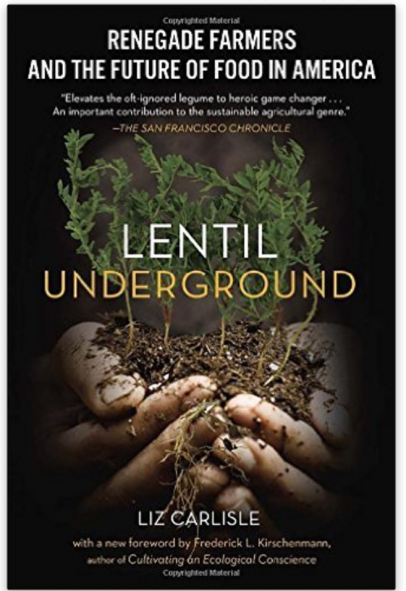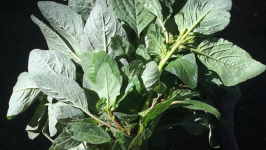Lentil Underground: Renegade Farmers and the Future of Food in America
In an industrial agriculture system run by corporate agribusiness, much of what farmers grow isn’t actually food. Rather, it’s feed for livestock or raw materials from which to manufacture processed additives like high-fructose corn syrup. And while many farmers might prefer to grow something different—something more regenerative for the soil and more lucrative for the community—creating an alternative to the industrial ag model isn’t easy. But the Montana farmers profiled by Liz Carlisle in Lentil Underground are doing just that, and their story is worth reading.
Montana shares similarities with Idaho—it’s a largely agricultural state with a small population, mostly conservative politics and scarce water. During the late ’70s “get big or get out” era led by Secretary of Agriculture Earl Butz, David Oien returned to his family’s 280-acre farm in Conrad, Montana. Before “cover crop” became a household phrase, Oien decided he would reject the increasingly chemical-dependent agriculture being promoted at the local and national level in favor of one that generated its own fertility and fed local inhabitants.
Of course, one renegade does not a revolution make, so Oien devoted the next 40 or so years of his life to recruiting and inspiring other farmers in his area to join his quest. After several failed attempts, the crew discovered lentils—a low-water crop healthy for both soil and people.
Not only did these farmers have to learn to farm without chemicals with little institutional knowledge remaining in their communities, they had to create a market for an obscure and not decidedly “American” legume. And while they were at it, they had to figure out a way to harvest, clean, package and distribute it.
What followed offers a road map for the regeneration of midscale agriculture in America. At one point in the growth of Timeless Seeds, the company formed by Oien and his partners, Trader Joe’s handed them an enormous contract for several varieties of lentils. They invested in a new processing plant and equipment and almost went bankrupt when, two years later, the corporation pulled their contract without notice. Timeless Seeds learned a valuable lesson about diversity: If it’s crucial in the field, it’s also crucial in the sales channels. Thus, Timeless expanded into marketing their own products and now sells them in thousands of independent stores around the country, including several in Idaho. They’ve also developed an extensive network of chefs and an expanded offering of heirloom grains, oilseeds and legumes.
Lentil Underground shows the ways that close-knit communities of neighbors can work together to create resilient structures, if they are able to respect differences while opening their minds and their farms to new ideas. It’s a worthwhile read for anyone interested in changing our food system.








